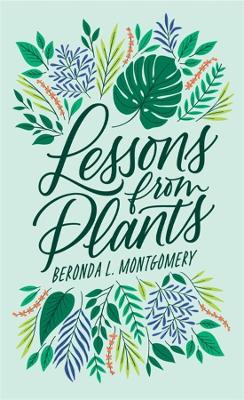Reviewed by annieb123 on
Lessons from Plants is an engaging and philosophical look at the way plants react, adapt, and survive in their ecological niche and how those mechanisms can potentially inform our human interactions. Due out 6th April 2021 from Harvard University Press, it's 240 pages and will be available in hardcover and ebook formats.
This is a well annotated and academically rigorous (but layman accessible) multi-discipline look at human behaviors with comparisons drawn from the world of botany. The chapters are written thematically: adaptability, competition and cooperation (and distinguishing between them), risk, growth and transformation, diversity, and success. This is not -just- botany as an analogy for feel-good pop psychology. This is exactly as advertised, a multi-disciplinary exploration of some complex and fascinating botanical and ecological mechanisms which are well explained, science based, layman accessible and also applicable to our lives and experiences. The author, Dr. Beronda L. Montgomery, has a calm and capable voice and does a good job of rendering concepts in understandable straightforward language. She (happily) never devolves into overwrought academic constructions to obfuscate or attempt to make herself seem more intelligent. I can easily imagine she would be a capable and worthwhile lecturer (in whatever discipline).
The book is enhanced throughout by the addition of simple line drawn graphics to illustrate salient points. The chapter annotations will provide keen readers with many hours of further reading.
This is admittedly a niche read, but it would undoubtedly make a good selection for library acquisition or book club use. I would also recommend it for the philosophy minded gardener or students of the human condition.
Four and a half stars. Rounded up for the comprehensive annotations and clear and concise writing.
Disclosure: I received an ARC at no cost from the author/publisher for review purposes.
Reading updates
- Started reading
- 17 March, 2021: Finished reading
- 17 March, 2021: Reviewed
